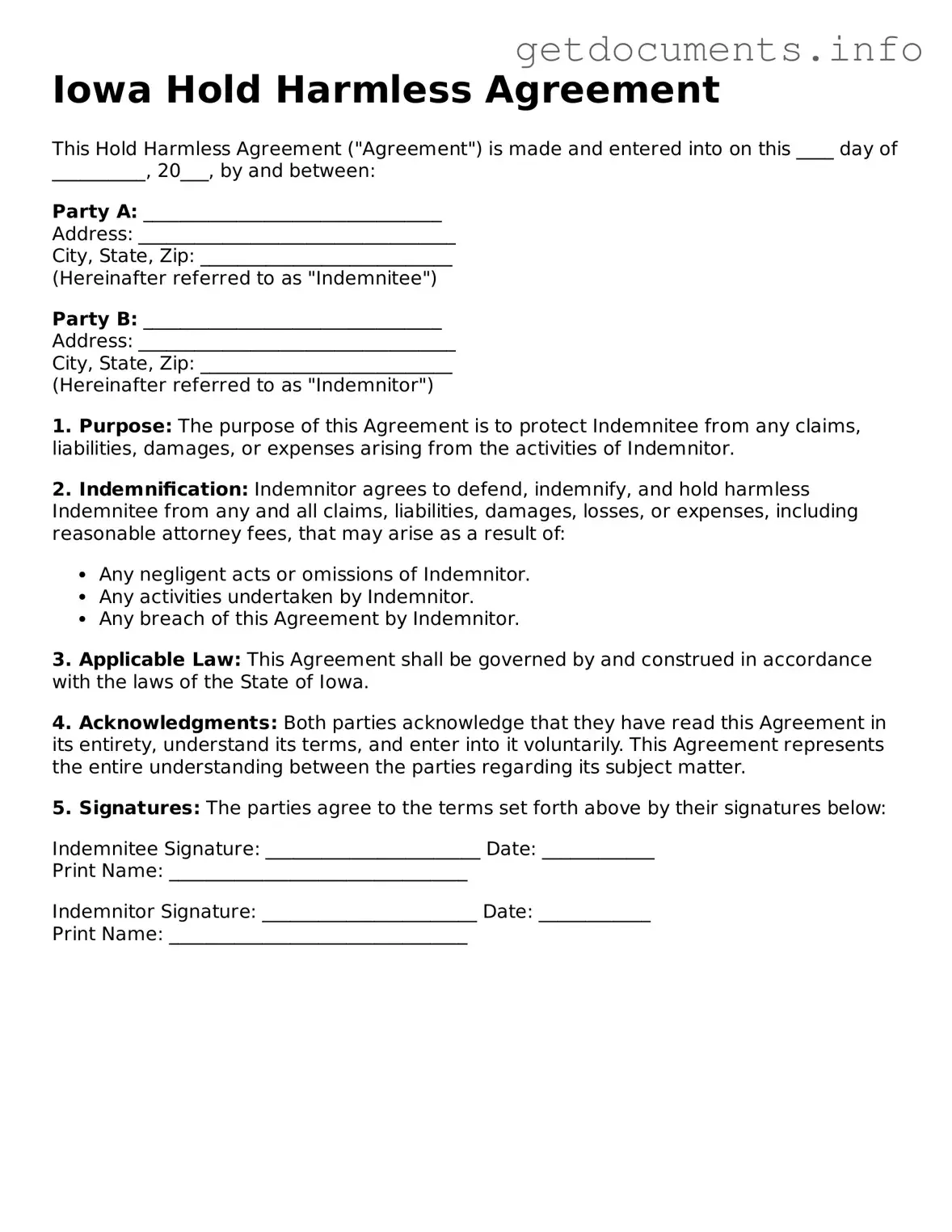Free Hold Harmless Agreement Template for Iowa
The Iowa Hold Harmless Agreement is a legal document designed to protect one party from liability for damages or injuries that may occur during a specific activity or event. This form ensures that participants acknowledge the risks involved and agree not to hold the other party responsible for any unfortunate incidents. For those looking to safeguard their interests, filling out this form is a crucial step—click the button below to get started.
Access Hold Harmless Agreement Editor

Free Hold Harmless Agreement Template for Iowa
Access Hold Harmless Agreement Editor
Got places to be? Complete the form fast
Fill out Hold Harmless Agreement online and avoid printing or scanning.
Access Hold Harmless Agreement Editor
or
⇩ PDF File
